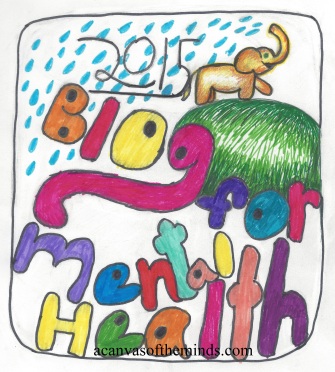At the risk of sounding completely inconsolable, I have to admit, I don’t find most of the self-help articles on social media helpful.
Take, for example, the article 30 Things to Stop Doing to Yourself. I have no problem with the suggestions themselves, but I don’t like advice that begins with the word stop. In therapy, if after the first session I were to say “You’re problem is that you look exclusively to others for happiness. Stop doing that,” I’m not sure the person would come back.
Research supports the idea that stop statements are not helpful, because when you say something like “stop being idle,” you put the idea of being idle in the person’s head. If you’ve taken psychology classes, you’ve probably heard the example “don’t think about a pink elephant.” You probably weren’t thinking about one before, but you are now.
A lot of people do find advice like this helpful, and that’s great. Personally, it makes me feel more judged than inspired. I respond better to strategies that emphasize empathy and compassion, self-acceptance, and forgiveness. And I prefer suggestions that encourage me to be the best version of myself to admonitions for doing things wrong.
If I were to come up with a list like this, here’s how I would paraphrase their recommendations:
1., 13., 19., & 20. Spend time with people who bring out the best in you.
2. & 23. Have faith in yourself; it’s the best investment you’ll ever make.
3., 25., & 26. Commit to being honest with yourself and to others.
4., 21., & 27. Put your needs first. Period.
6. & 8. Practice forgiveness of yourself and others.
7., 23., & 29. Take risks, even if it means that you will fail.
9., 10., & 28. Happiness cannot be found out there in the future; it comes from within, in this moment.
11. & 12. You can move forward, even when you don’t feel ready.
14. Let people get to know you, even if it scares you.
5., 15., & 16. Make your standard of comparison the best version of yourself rather than someone else or some perfect ideal.
17. & 18. Negative experiences teach us lessons that we wouldn’t have chosen to learn on our own.
22. Think of mindfulness as exercise for your brain.
27. Practice gratitude regularly, and thank the people who you are grateful for every chance you get.
It takes a lifetime to put these values into practice, so be patient, have faith, and be kind to yourself in the process.
I’m adding designer marbles to my doodle collection.







I like this list of items that can further improve our persomal enhancement. It's a positive guide to encourage and motivate ourselves and others.
LikeLike
Thanks Michelle!
LikeLike
Excellent point, and I like your list better 🙂 It is easier to make positive changes when addressed with positive words instead of negative. “Stop” tends to make me linger more on what I am doing wrong than actually changing it. Words can be very powerful, even in the most subtle ways.
LikeLike
Thanks Amy! When you're sensitive to criticism it doesn't take much to make you feel like you did something wrong.
LikeLike
A psychologist friend of mine (child psychologist) pointed this out to me a few years back and now you remind me / reinforce the lesson to me. He pointed out the same thing; that when you try to correct a child's behavior, you have to make sure not to say it in the negative because the bad behavior will stick (e.g. Don't slam the door). The mind is a tricky thing, but oh so wonderful indeed! Love your list, focusing on gratitude, mindfulness and compassion. I couldn't agree more!
LikeLike
Thanks, Joy! Every psychological theory says the same thing, but with different terminology. It really emphasizes how important it is to choose what we say to ourselves and to other people wisely.
LikeLike